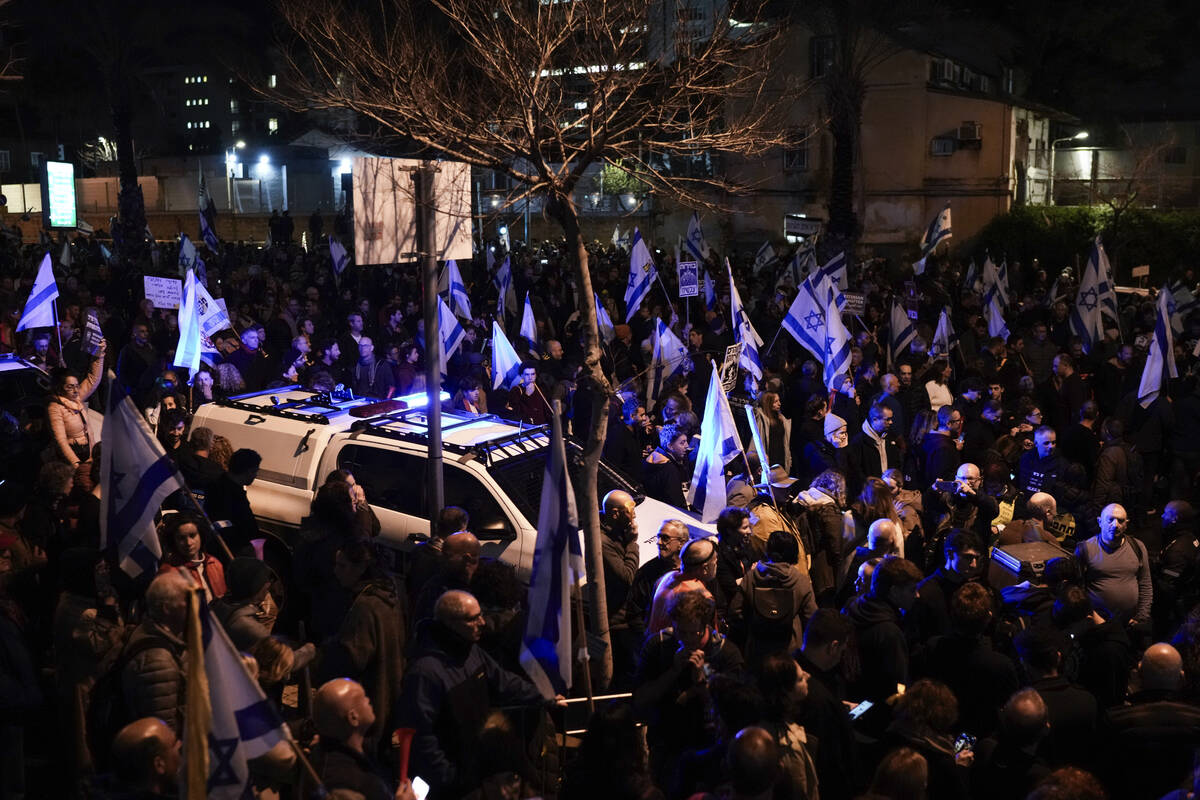Qatar: Israel-Hamas cease-fire talks not ‘progressing as expected’

RAFAH, Gaza Strip — Talks on a potential cease-fire deal in Gaza “have not been progressing as expected” in the past few days after good progress in recent weeks, key mediator Qatar said Saturday, as Israel’s prime minister accused the Hamas terrorist group of not changing its “delusional” demands.
Speaking during the Munich Security Conference, Qatar’s prime minister, Sheikh Mohammed bin Abdurrahman Al Thani, noted difficulties in the “humanitarian part” of the negotiations.
Israeli Prime Minister Benjamin Netanyahu, who is under pressure to bring home remaining hostages taken in the Oct. 7 Hamas terrorist attack, said he sent a delegation to cease-fire talks in Cairo earlier in the week at U.S. President Joe Biden’s request but doesn’t see the point in sending them again.
Hamas wants a permanent cease-fire in Gaza and the release of Palestinians held by Israel.
Netanyahu also pushed back against international concern about a planned Israeli ground offensive in Rafah, a city on southern Gaza’s border with Egypt. He said “total victory” against Hamas requires the offensive, once people living there evacuate to safe areas. Where they will go is not clear.
New airstrikes in central Gaza on Saturday killed more than 40 people, according to Associated Press journalists and hospital officials. Israel’s military said it carried out strikes there against Hamas.
Five people were killed in an Israeli airstrike that targeted a house outside Khan Younis in the south, according to health officials, and another five people, including three children, were killed in an airstrike on a building north of Rafah.
Israel’s air and ground offensive was triggered by the Oct. 7 terrorist attack that killed some 1,200 people in Israel and took 250 others hostage.
Biden has urged Israel not to carry out an operation in Rafah without a “credible” plan to protect civilians.
Israel has said it has no plans to force Palestinians into Egypt.
Egyptian Foreign Minister Sameh Shoukry, who also spoke at the Munich Security Conference, said “it is not our intention to provide any safe areas or facilities, but … we will provide the support to the innocent civilians, if that was to take place.”
Two senior Egyptian officials said Egypt is building additional defensive lines in an existing buffer zone that extends 3 miles from the border. They spoke on condition of anonymity because they were not authorized to discuss details with the media.
The buffer zone, built as part of Egypt’s battle against an Islamic State group insurgency, was meant to prevent weapons smuggling to and from Gaza.